
Posted on 02/11/2020 5:05:49 AM PST by Homer_J_Simpson







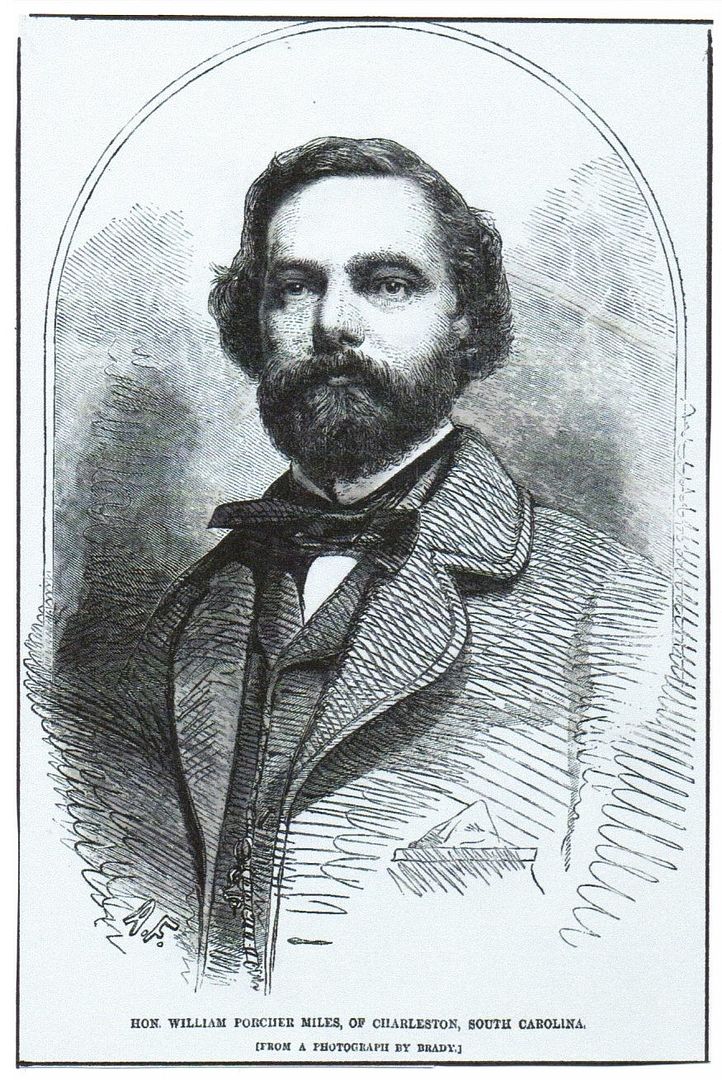




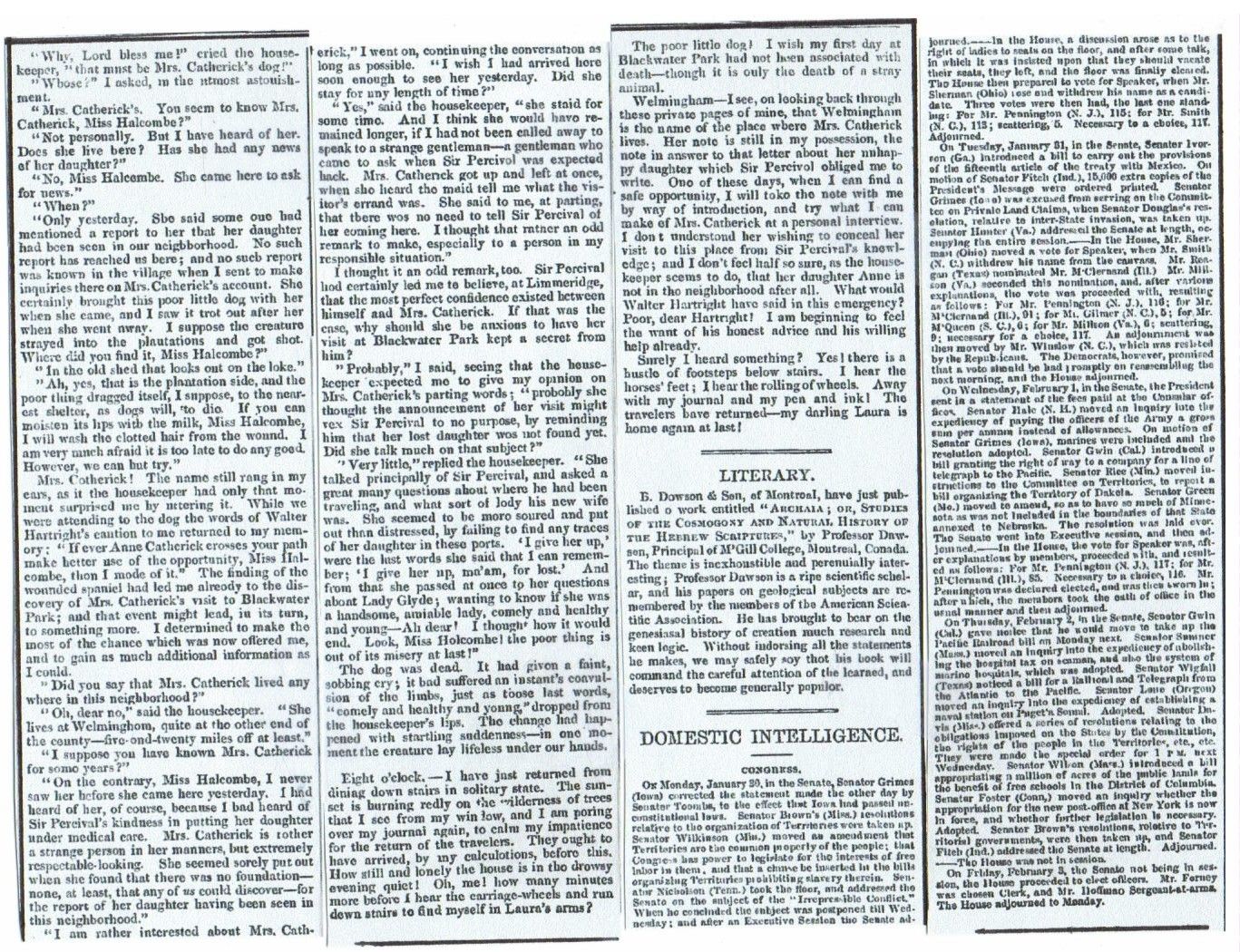







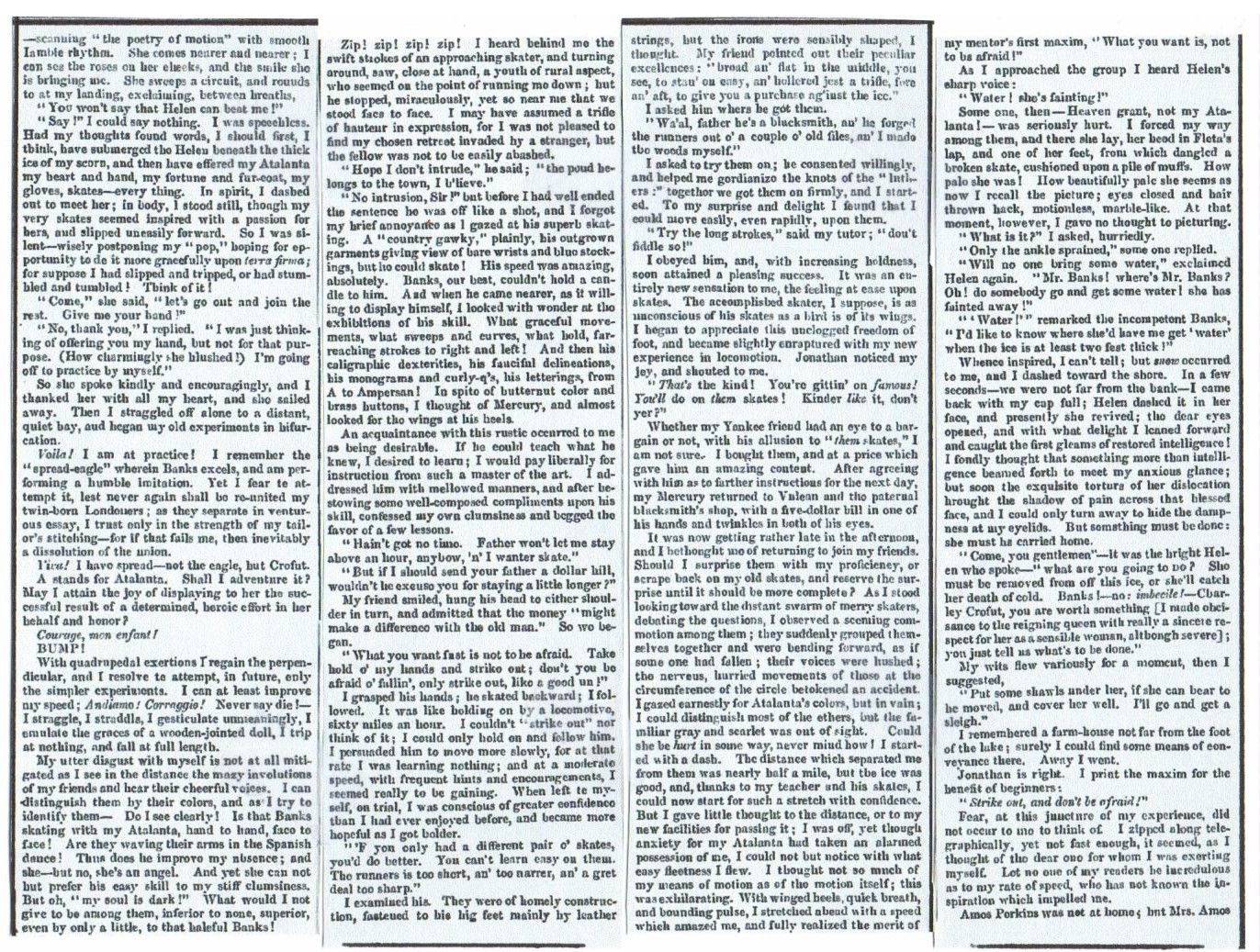





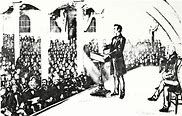
Free Republic University, Department of History presents U.S. History, 1855-1860: Seminar and Discussion Forum
Bleeding Kansas, Dred Scott, Lincoln-Douglas, Harper’s Ferry, the election of 1860, secession – all the events leading up to the Civil War, as seen through news reports of the time and later historical accounts
First session: November 21, 2015. Last date to add: Sometime in the future.
Reading: Self-assigned. Recommendations made and welcomed.
Posting history, in reverse order
To add this class to or drop it from your schedule notify Admissions and Records (Attn: Homer_J_Simpson) by reply or freepmail.
WASHINGTON, February 11, 1860.
J. S. PIKE, ESQ.
DEAR SIR: Yours of yesterday is received. Many thanks for your kindness in saving me from another assault in the Tribune.
I see from the Tribune of yesterday that you suppose there was some unbecoming altercation between Mr. Colfax and myself in the House. This is a great mistake. There are no two members of the House whose personal relations are more kind and cordial than Mr. Colfax's and my own. I of course felt the awkwardness of my position in opposing the election of a candidate nominated by a caucus in which I participated. To break the force of an anticipated attack on that ground I referred to the vote of the friends of Mr. Defrees, and especially Mr. Colfax, in 1856. I probably acted indiscreetly in doing so. Mr. Colfax exhibited a little feeling in his reply, but subsequent explanations have removed every trace of it, and our former amicable relations are fully and completely restored.
SOURCE: James Shepherd Pike, First Blows of the Civil War: The Ten Years of Preliminary Conflict in the United States from 1850 to 1860, p. 485-6
I looked up William Porcher Miles. He was a rabid pro-slavery Fire Eater.
Not surprising, representing Charleston. His home town will be hosting the DNC in April.
I think I have mentioned before that Colfax, also known as The Fax, is the longest street in Denver, stretching from the far Eastern burbs to the far Western and going through the heart of the City. In places it’s downright seedy. Casa Bonita, like nothing else you will see anywhere, is on The Fax. To steal a phrase, delightfully tacky, yet unrefined.
PETERBORO, February 13, 1860.
WATTS SHERMAN, Esq.:
Sir: — My father-in-law, Mr. Gerrit Smith, has at length so far waked up from the eclipse of his intellect as to be able to read and to hear reading. He has just now seen, for the first time, the “Manifesto of the New York Democratic Vigilance Association,” published last October, in which you connect his name with a certain "Central Association," of bloody and horrible purposes.
As Mr. Smith belongs to no society, has always opposed secret societies, had never before heard of this "Central Association," and condemns all shedding of human blood, save by government, he necessarily feels himself to be deeply wronged by you and your associates. He holds you and them responsible, for calling in effect upon the people both of the north and south to detest and abhor him.
Mr. Smith wishes to know without any delay, whether you and your associates will persist in your libel, or make the unqualified and ample retraction which the case calls for.
P. S. — I do not as yet write to any of the Executive Committee except yourself, Mr. Phelps, and Mr. Barlow.
2d P. S. — It occurs to Mr. Smith that it may have been the "Provisional Government" adopted by the Convention at Chatham, C. W., with which you intended to identify him. But Mr. Smith bids me say to you that this can not relieve you, since never, until within a few weeks, has he heard of that "Government," or that Convention. What that Government was, he has yet to learn, as he has not heard or read a line of its provisions.
SOURCE: Octavius Brooks Frothingham, Gerrit Smith: A Biography, p. 246; Gerrit Smith, Gerrit Smith and the Vigilant Association of the City of New-York, p. 3-4
I get that Mr. Watts Sherman and his father-in-law are pretty irritated. Did Mr. Smith have a stroke?
According to the David Blight biography of Frederick Douglass, Smith “struggled with a mental breakdown in the wake of Harper’s Ferry.”
That’s a little vague.
I sometimes wish I were allowed to have a mental breakdown when unhappy with current events, but I guess it would be more trouble than it’s worth.

Abraham Lincoln: Speeches and Writings 1859-1865, edited by Don E. Fehrenbacher
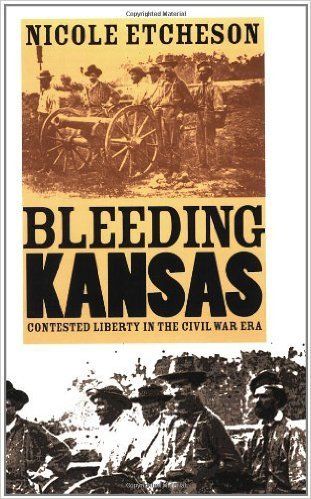
Continued from December 2, 1859 (reply #12) .


Nicole Etcheson, Bleeding Kansas: Contested Liberty in the Civil War Era
COLUMBUS, Feb. 14, I860.
DEAR SUMNER, Your congratulations, if not among the first, were by no means the least welcome; for I know the sincere & noble heart from which they came.
But I feel no pleasure in the thought of returning to the Senate. If circumstances warrant me in so doing I shall prefer to resign without taking my seat. These are days of too much concession to suit me.
We all remember you with love and admiration. Your picture hangs alone in my library over a framed autograph of Charles Carroll. It hangs with others, all of earnest men, in my dining room. I put them all up when I first opened my house, as a defiance to the proslavery men who would resist or debase republicanism — as symbols of my faith and my purposes.
Why should Seward retire from the Senate? Is he certain of the nomination at Chicago? I do not so read the signs exactly; but I shall not be disappointed, if such shall be the event. I look upon him as a great man, faithful to the cause of freedom & humanity, & worthy of any honor which can be conferred upon him. We don't agree in some views, but I should be ashamed of myself, if I could be moved to undervalue or decry him. On the contrary I heartily honor, & cheerfully praise &, if the Republicans choose him as their standard bearer, shall zealously support him.
SOURCE: Diary and correspondence of Salmon P. Chase, Annual Report of the American Historical Association for the Year 1902, Vol. 2, p. 285-6
What a strange time. Most of Missouri really isn’t suitable for plantation agriculture, so I doubt the slave population was very large. But they sure clung to the slavers’ cause.
It’s like the pro-abortion position today. You have to stick to it being right because you don’t want to face the implications of being wrong.
Great point, Homer.
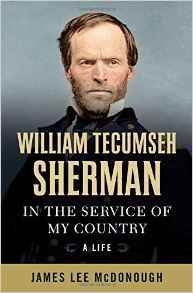
Continued from January 12 (reply #17). Sherman wrote to brother-in-law Thomas Ewing, Jr. on this date.

James Lee McDonough, William Tecumseh Sherman: In the Service of My Country, A Life
February 17. Old Stephen Whitney dead, leaving (some say) fifteen millions behind him.* That may be exaggerated, but he was close-fisted enough to have saved up thirty without doing the least good to himself or anyone else. His last act was characteristic and fitting. He locked up his checkbook and died
* Moses Y. Beach’s Wealthy Citizens of New York (1845) had listed Whitney, a merchant, cotton speculator, and real estate investor whom it described as “a very shrewd manager and close in his dealings,” as worth ten millions and standing next John Jacob Astor in wealth.
The Diary of George Templeton Strong, Edited by Allan Nevins and Milton Halsey Thomas
Snarky!
Disclaimer: Opinions posted on Free Republic are those of the individual posters and do not necessarily represent the opinion of Free Republic or its management. All materials posted herein are protected by copyright law and the exemption for fair use of copyrighted works.